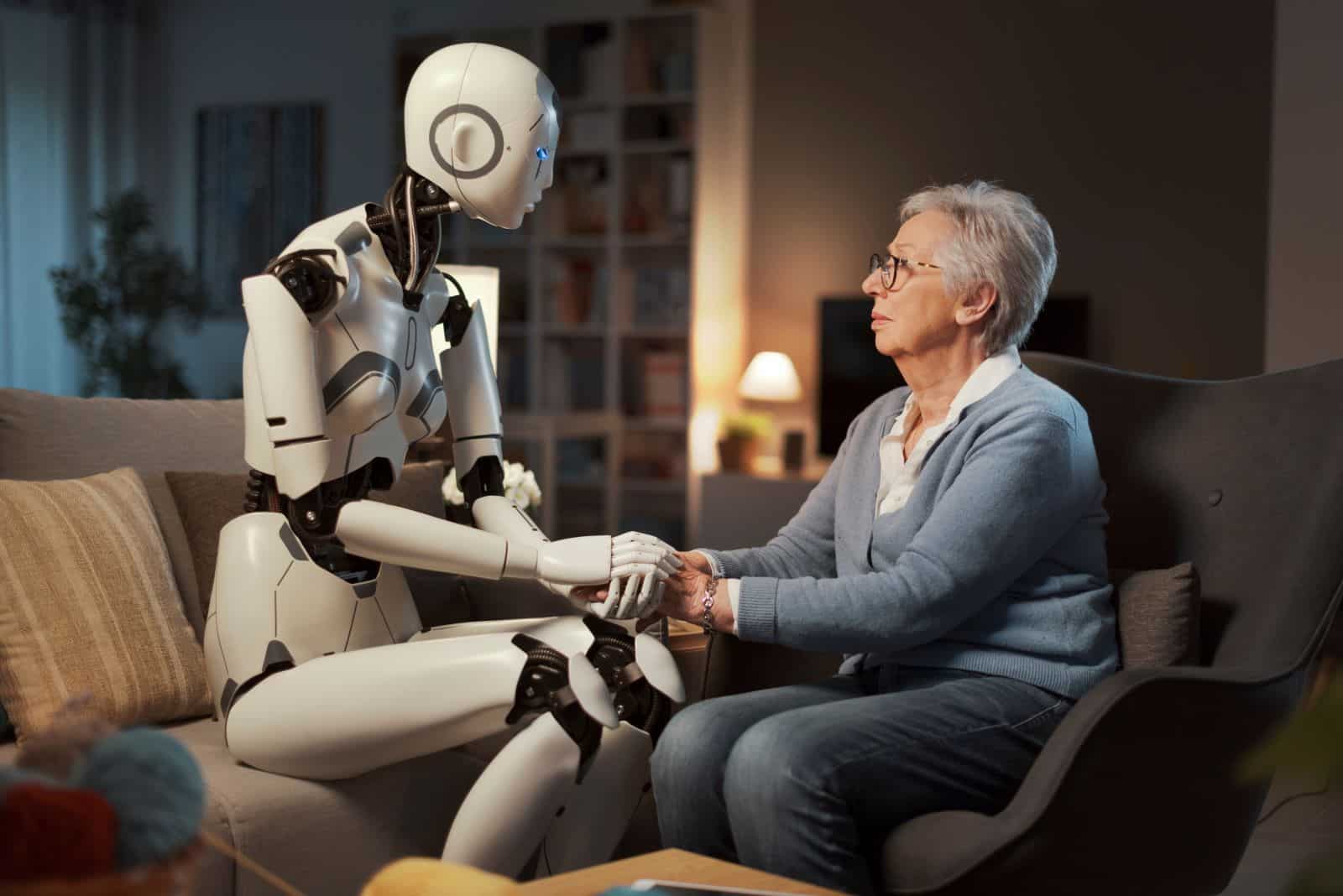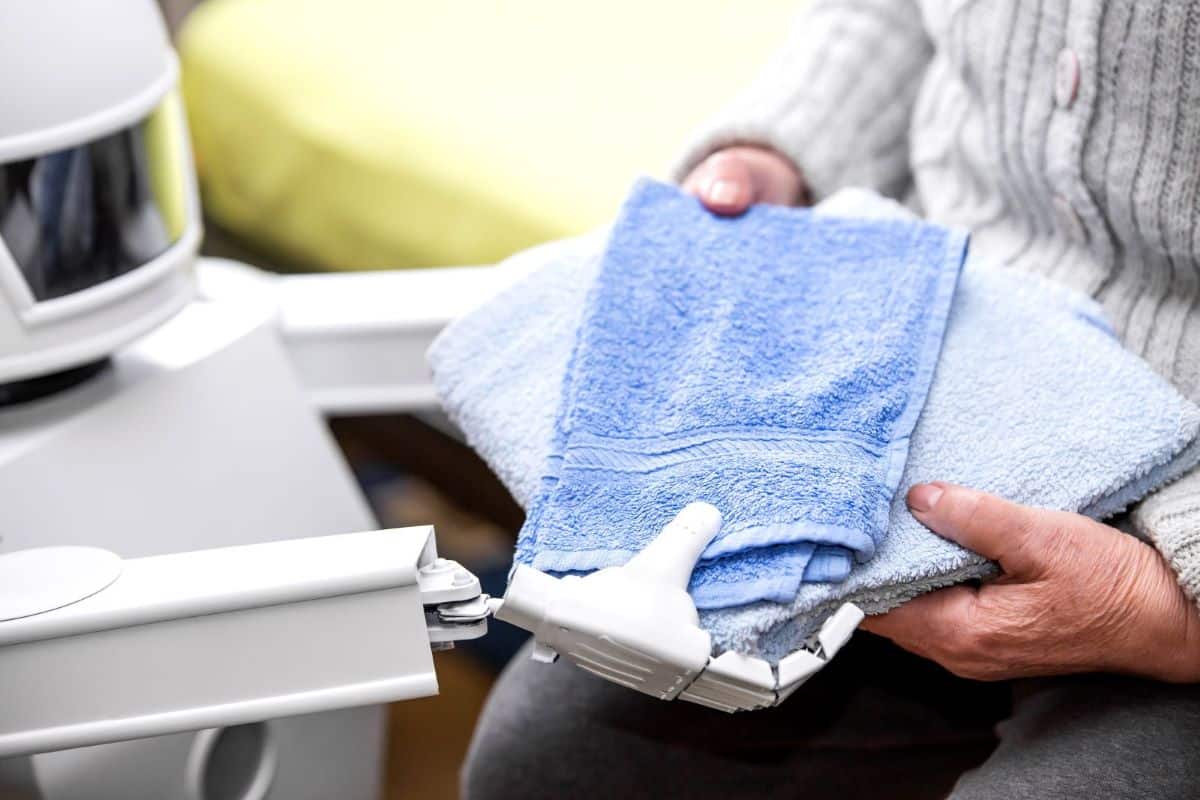Are we truly prepared to welcome robots into our homes as companions and caregivers? The idea sounds straight out of a sci-fi novel, but AI technology is advancing rapidly, bringing this concept closer to reality.
1. Privacy Invasion

AI companions are equipped with cameras and microphones, constantly monitoring their environment. This raises significant privacy concerns, as data collected could be misused or hacked. The comfort of having a robot around might not outweigh the risks of losing personal privacy.
2. Dependency on Technology

Relying on AI for companionship can lead to increased dependency on technology. What happens when the system crashes or malfunctions? We might find ourselves helpless without our robotic friends, highlighting the fragility of such dependency.
3. Emotional Manipulation

AI can simulate emotions and responses, but can it truly understand human feelings? Critics argue that this could lead to emotional manipulation, where people form bonds with entities incapable of genuine empathy. It’s a dangerous path that blurs the lines between reality and artificial interaction.
4. Loss of Human Jobs

Introducing robots into caregiving roles could displace human workers. This could lead to significant job losses in the healthcare and service sectors, impacting the economy and increasing unemployment rates. Are we willing to sacrifice human jobs for technological convenience?
5. Ethical Programming

Who decides the ethical parameters for AI behavior? Programming morality into a machine is complex and subjective, raising questions about whose values and norms are being embedded. This ambiguity can lead to unpredictable and potentially harmful decisions by AI companions.
6. Accessibility and Cost

High costs could make AI companions accessible only to the wealthy, exacerbating social inequality. While the rich enjoy the benefits of advanced technology, the less fortunate might be left behind. This technological divide is a significant ethical issue.
7. Human Connection

Can robots truly replace human interaction? AI companions might offer practical assistance, but they lack the genuine emotional connection and understanding that human relationships provide. This could lead to increased loneliness and isolation rather than alleviating it.
8. Reliability and Maintenance

AI technology is not infallible. Machines require regular maintenance and updates, and their reliability can be questionable. A malfunctioning robot caregiver could pose serious risks, particularly in critical situations.
9. Data Security

The vast amount of data collected by AI companions needs robust security measures. Breaches could expose sensitive personal information, leading to identity theft or other cybercrimes. Ensuring data security is a monumental task that is often underestimated.
10. Ethical Treatment of AI

As AI develops, questions arise about the ethical treatment of robots. Do they deserve rights or ethical considerations similar to humans? This philosophical dilemma complicates the integration of AI into our daily lives.
11. Practical Assistance

On the practical side, AI companions can provide invaluable help to the elderly and disabled. Tasks such as medication reminders, mobility assistance, and emergency alerts can significantly improve the quality of life for those in need. The potential benefits in healthcare are undeniable.
12. 24/7 Availability

Unlike human caregivers, robots can work around the clock without breaks. This constant availability ensures that assistance is always on hand, offering peace of mind to both users and their families.
13. Reducing Caregiver Burden

AI companions can alleviate the burden on human caregivers, providing support with routine tasks and allowing caregivers to focus on more complex needs. This can improve the overall caregiving experience and reduce burnout.
14. Consistent Performance

Robots don’t suffer from fatigue or emotional stress, ensuring consistent performance in caregiving tasks. This reliability can be crucial in maintaining the well-being of those who depend on regular care.
15. Tailored Assistance

Advanced AI can learn and adapt to individual preferences and routines, offering personalized assistance. This customization can enhance the user experience and provide more effective support.
16. Educational and Recreational Support

AI companions can assist with educational tasks, providing tutoring and interactive learning experiences. They can also offer recreational activities, keeping users engaged and mentally stimulated.
17. Remote Monitoring

AI caregivers can provide remote monitoring capabilities, allowing family members and healthcare professionals to keep track of the user’s well-being from a distance. This feature can be particularly useful in managing chronic conditions.
18. Emergency Response

Robots equipped with emergency response capabilities can detect and react to crises, potentially saving lives. Features like fall detection and automatic emergency calling can be lifesaving.
19. Social Interaction

For those who struggle with social interaction, AI companions can provide a non-judgmental, constant presence. This can help build confidence and social skills in a safe environment.
20. Economic Efficiency

In the long run, AI companions could reduce healthcare costs by minimizing the need for human caregivers. This economic efficiency could make quality care more affordable and accessible.
21. Ethical Balance

Finding the balance between ethical concerns and practical benefits is key. Ongoing research, strict regulations, and ethical programming are essential to navigate the integration of AI companions into society. The question remains: are we ready to take on this challenge responsibly?
Ready or Not?

As we stand on the brink of this technological revolution, we must ask ourselves: Are we truly prepared to welcome AI companions into our lives? The benefits are clear, but so are the risks. How do we strike the right balance?
The post Robot Caregivers first appeared on Mama Say What?!
Featured Image Credit: Shutterstock / Miriam Doerr Martin Frommherz.
For transparency, this content was partly developed with AI assistance and carefully curated by an experienced editor to be informative and ensure accuracy.





